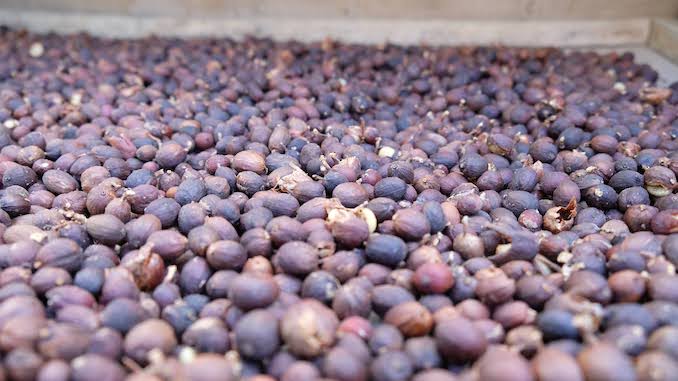
We discuss some of the uses for coffee by-products so business owners and coffee professionals can use and promote them more effectively and sustainably.
BY YKER VALERIO
SPECIAL TO BARISTA MAGAZINE ONLINE
Cover photo by Dirk Lachenmeier at the CVUA Karlsruhe, Germany
Last week, we discussed what coffee by-products are and the different forms they come in. Business owners across the coffee value chain—from small farming businesses in origin countries to large coffee franchises—can benefit from this promising offering.
The benefits of selling coffee by-products are two-fold. First, they prevent and reduce coffee loss and waste. Second, they increase revenue streams for business owners across the entire coffee value chain.
Capitalizing on the benefits of selling coffee by-products offers opportunities and challenges for businesses.

Do we need coffee by-products?
Coffee has a deep social significance. We share it with friends and family. For this reason, coffee shops have traditionally offered alternative beverages like tea, blended coffee drinks, and smoothies to attract a larger customer base. Beverages made from coffee by-products would just widen the possibilities to offer.
By-products like cascara, coffee leaf tea, and coffee blossom tea can be attractive for a larger customer base on the online sphere too. They are sweeter and can be served hot or cold, like most infusions. In some coffee-producing countries like Yemen, locals have been serving traditional drinks like qishr for centuries.
Coffee producers benefit from by-products
Although selling products based on coffee by-products can be beneficial for coffee importers, roasters, and coffee shops, it can make a big difference for coffee producers as well.
In 2018, the Specialty Coffee Association expressed it plainly through its Coffee Price Crisis Response Initiative summary of work: Inequitable value distribution is a key root cause of the price crisis. In 2021, the situation is more dramatic, as extreme weather conditions are damaging coffee crops and pushing up coffee commodity prices, while millions of coffee business owners and workers are at risk.
An avenue for a more sustainable and profitable business for coffee producers is to sell these by-products. According to Dirk Lachenmeier from the Chemical and Veterinary Investigation Agency Karlsruhe in Germany, the commercialization of coffee by-products can help to create safer and more sustainable working conditions for coffee workers.
According to Dirk, coffee-growing businesses will be able to offer better wages and contracts to their workers if they can create additional revenue streams, including from offering coffee by-products year-round.
Chahan Yeretzian, head of the Coffee Excellence Center of the Zurich University of Applied Sciences, agrees on the importance of coffee by-products. Even relatively small increases in income can make a difference for coffee producers, according to Chahan.
However, profit and social value are not the only variables at play.
Are they legal?
After years of niche commercialization, the growing interest in cascara for commercial purposes triggered a regulatory process in the European Union in 2015. As a result, the commercialization slowed dramatically and, in the case of cascara, stopped in many markets.
The Chemical and Veterinary Investigation Agency Karlsruhe and the Coffee Consulate in Germany published a review of coffee by-products in 2020. Coffee leaf tea already received the European Food Safety Authority approval, and experts like Dirk and Chahan are optimistic about cascara’s separate process.
In the United States, commercialization has been easier, as well as in Australia, another heavy coffee importer.
Considering that Europe consumes more than 30% of coffee production each year, the European Food Safety Authority will play a significant role in the future of coffee by-products.
The future of coffee by-products
Scalability will be essential after receiving approval. For instance, work at the Instituto de Investigación en Ciencias de la Alimentación in Madrid, Spain, follows the code of conduct of the Food and Agriculture Organization of the United Nations to prevent and reduce food loss and waste.
Amaia Iriondo-DeHond and Dolores del Castillo’s work at the Instituto suggests there are scalable business opportunities for coffee by-products, as food and beverages ingredients, or raw materials for further processing in the food, energy, bioplastics, and nutraceuticals industries. Dirk’s work at the agency supports these findings for coffee leaves and flowers, specifically.
Still, consumers and coffee shops will play a decisive role in the profitability and sustainability of coffee by-products.


